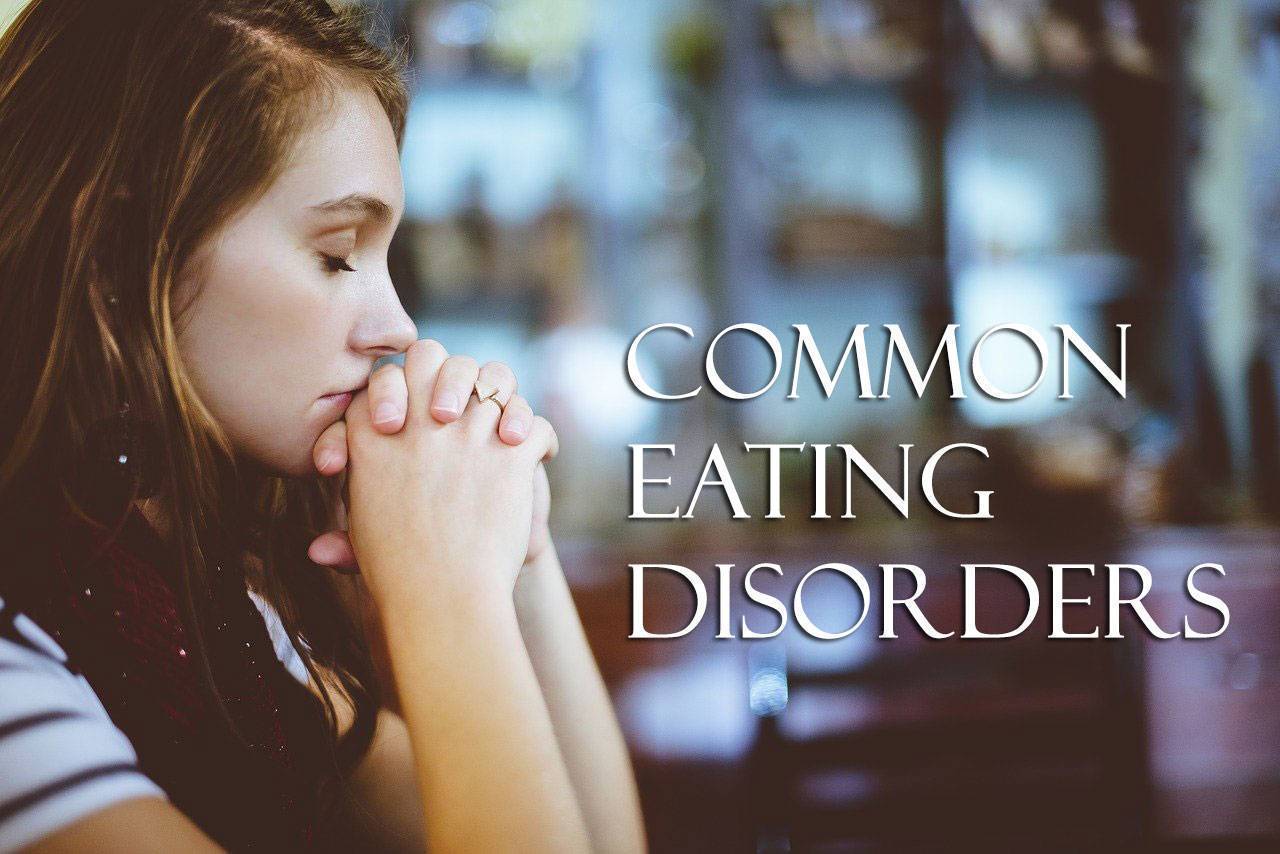What Are Common Eating Disorders?

by Dr. Shanthi Thomas
Eating disorders are complex mental health conditions that require medical and psychological intervention. Young women are predominantly the victims of eating disorders, though anyone at any age can fall prey to these. These disorders often begin as an obsession with one’s body, weight and shape, and quickly develop into much more complex conditions. These conditions can be overcome with therapy from BetterHelp. There are six most common eating disorders.
1. Anorexia nervosa
Anorexia Nervosa is by far the most well-known of the eating disorders. People affected by this view themselves as overweight, even though they are dangerously underweight. They constantly watch their weight, and severely restrict their food intake.
The common symptoms of Anorexia Nervosa include the following:
- Being underweight
- Having restricted eating patterns
- Intense fear of gaining weight
- Self-esteem being dependent on body weight and shape
- A distorted body image
Anorexia Nervosa is of two types: a) the restricting type and b) the binge eating and purging type. Individuals with restricting type lose weight through fasting, dieting and rigorous exercise. Individuals with binge eating and purging type eat large amounts or very little. After they eat, they purge by vomiting, taking laxatives or exercising excessively.
The effects of Anorexia Nervosa can be very damaging to the body. Individuals with this condition may experience infertility, thinning of bones, brittle nails and hair, and grow a layer of fine hair all over her body. In severe cases, it can result in brain and heart problems, multi-organ failure or even death.
2. Bulimia nervosa
People affected by Bulimia Nervosa eat unusually large amounts of food followed by purging. It tends to develop during adolescence or early adulthood, and is more common in women. Usually, individuals with Bulimia are able to maintain a relatively normal body weight.
Common symptoms of bulimia nervosa include the following:
- Frequent episodes of uncontrollable binge eating
- Frequent purging behaviours
- Self-esteem being tied to body shape and weight
- Fear of gaining weight
Bulimia may result in the individual suffering from an inflamed or sore throat, worn tooth enamel, tooth decay, irritation of the gut and hormonal imbalances. In more severe cases, it may cause imbalances in the levels of electrolytes in the body. This can lead to stroke or heart attack.
3. Binge eating disorder
Individuals affected by binge eating disorder typically eat very large amounts of food in short periods of time. During the binge eating, affected individuals are not able to control their food intake.
Common symptoms of binge eating disorder include the following:
- Eating abnormally large amounts of food quickly, in secret, till they are uncomfortably full
- Lack of control during the binge eating episodes
- Feelings of shame and guilt when thinking about the binge eating behaviour
- No purging behaviors, such as vomiting, calorie restriction, excessive exercise, or laxative or diuretic use, to compensate for the binging
Naturally, people with binge eating disorder are often obese, which increases their risk of medical complications such as heart disease, stroke and type 2 diabetes.
4. Pica
Individuals affected by Pica crave and eat non-food substances such as paper, hair, chalk, soil, dirt, ice, wool, pebbles, cornstarch or laundry detergent. This disorder is most frequently observed in children, pregnant women and individuals with mental disturbances.
Quite naturally, individuals with Pica are at an increased risk of poisoning, gut injuries, infections and nutritional deficiencies. It can even be fatal, depending on the nature of the substances ingested.
5. Rumination disorder
Rumination disorder is a comparatively newly recognized eating disorder. People affected by rumination disorder regurgitate the food they have previously chewed and swallowed, then re-chew and re-swallow it or spit it out. This behaviour typically occurs within 30 minutes of having a meal, and it is voluntary.
Infants with this condition grow out of it on their own. If it is not resolved in infants, it can result in malnutrition and weight loss in course of time. However, children and adults affected by it needs therapy to resolve it. Adults who are conscious of this disorder may restrict the amount of food they eat, and this may lead to loss of weight.
6. Avoidant/restrictive food intake disorder
This is a new name for a disorder long known to us, especially mothers. It refers to extreme pickiness or disturbed eating due to lack of interest in eating or distaste for certain textures, smells and tastes of food. It is most commonly seen in children but can persist into adulthood. It is not just defiant children who are picky. Even perfectly well-behaved children can fall prey to this condition.
Common symptoms include the following:
- Avoidance of food
- Poor development for age and height and weight loss
- Dependence on supplements or tube feeding to make up for nutrient deficiencies
